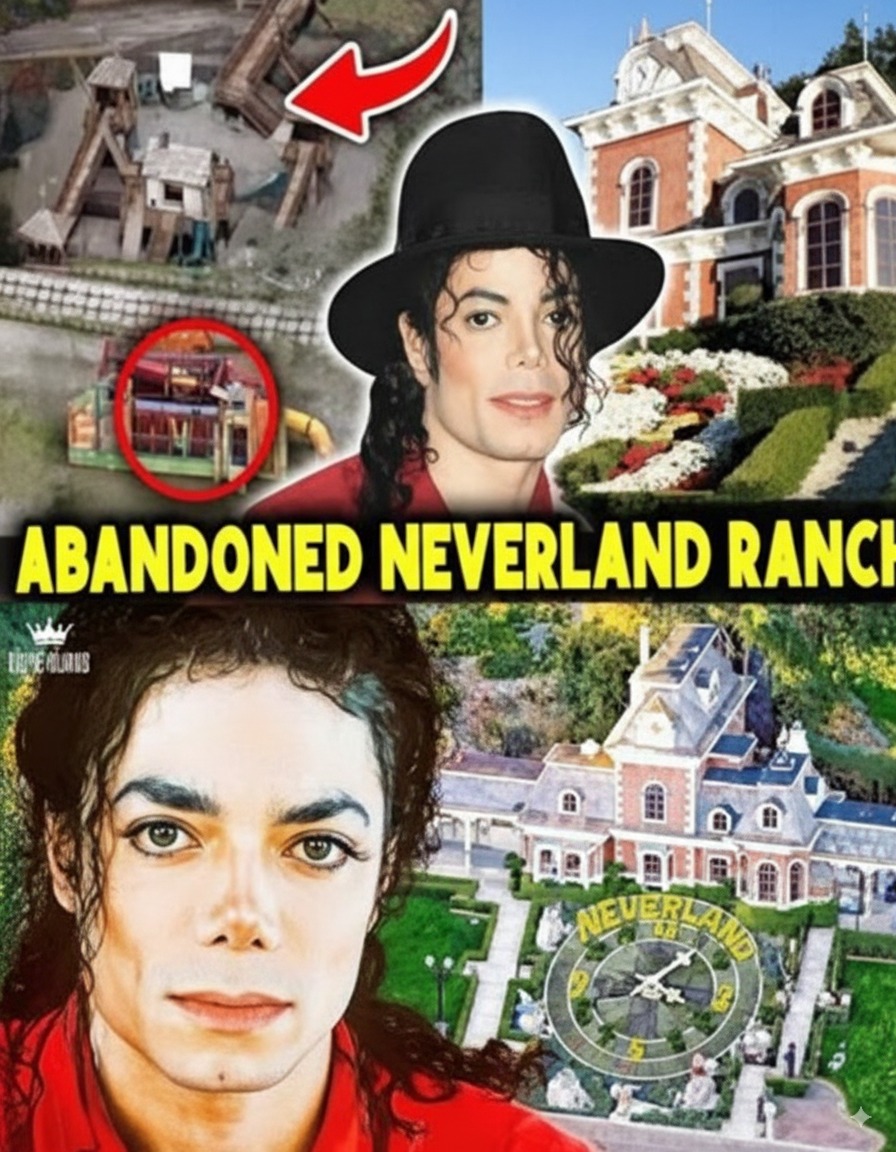Why No One Wants to Buy Michael Jackson’s Abandoned Neverland Ranch

Neverland Ranch, once a whimsical escape crafted by Michael Jackson, has become a symbol of controversy and burden, sitting unsold for years despite drastic price reductions. Located in Los Olivos, California, the 2,700-acre property was purchased by Jackson in 1988 for $17 million as Sycamore Valley Ranch.
Renamed Neverland after the mythical land in *Peter Pan*, it embodied Jackson’s longing for a lost childhood, featuring a zoo, amusement rides, a train, and lush gardens. It was a sanctuary from fame’s pressures, a creative hub for albums like *Dangerous*, and a home for his children.
However, Neverland’s magic faded with Jackson’s legal and financial troubles. In the 1990s and 2000s, allegations of child molestation—first in 1993 (settled out of court) and later in a 2005 trial (where he was acquitted)—tied the estate to scandal.
The 2019 documentary *Leaving Neverland* reignited public outrage with graphic claims of abuse occurring at the ranch, branding it with dark labels like “pedophile’s playground.” This stigma transformed Neverland from a dreamland into a public relations nightmare for potential buyers, who risked backlash and protests.
Financially, Jackson couldn’t sustain the estate’s upkeep, defaulting on a $24.5 million loan in 2008. Colony Capital took control to prevent foreclosure, but after Jackson’s death in 2009 from acute propofol intoxication, selling became even harder.
Listed in 2015 for $100 million, the price plummeted to $67 million in 2017 and $31 million in 2019, reflecting its deteriorated state—rides dismantled, animals gone, and grounds neglected. Its remote location lacked the allure of luxury hubs like Beverly Hills, and annual maintenance costs reached hundreds of thousands, deterring investors.
The property’s unique design, tailored to Jackson’s vision, made it impractical for traditional or commercial use. Real estate experts dubbed it a “white elephant”—grand but unwanted. Proposals to turn it into a Graceland-style museum were dismissed due to its controversial history.
Public figures and investors, including British heir Joe Bamford in 2013, walked away, wary of the estate’s baggage. Online theories of curses, paranormal activity, and conspiracies about hidden exploitation further tainted its image, portraying it as spiritually scarred.
In December 2020, billionaire Ron Burkle, a Jackson family associate, bought Neverland for just $22 million as a “land banking opportunity,” not a tribute or residence. The estate remains untouched, gates locked, and future plans unclear. Speculation ranges from resale in parcels to demolition for a return to nature.
Neverland, caught between greatness and grief, embodies a legacy too heavy to lift. Its silence mirrors Jackson’s complex story—once a place of wonder, now a haunting reminder of unresolved pain and controversy, unsellable not just for price, but for the weight of its past.